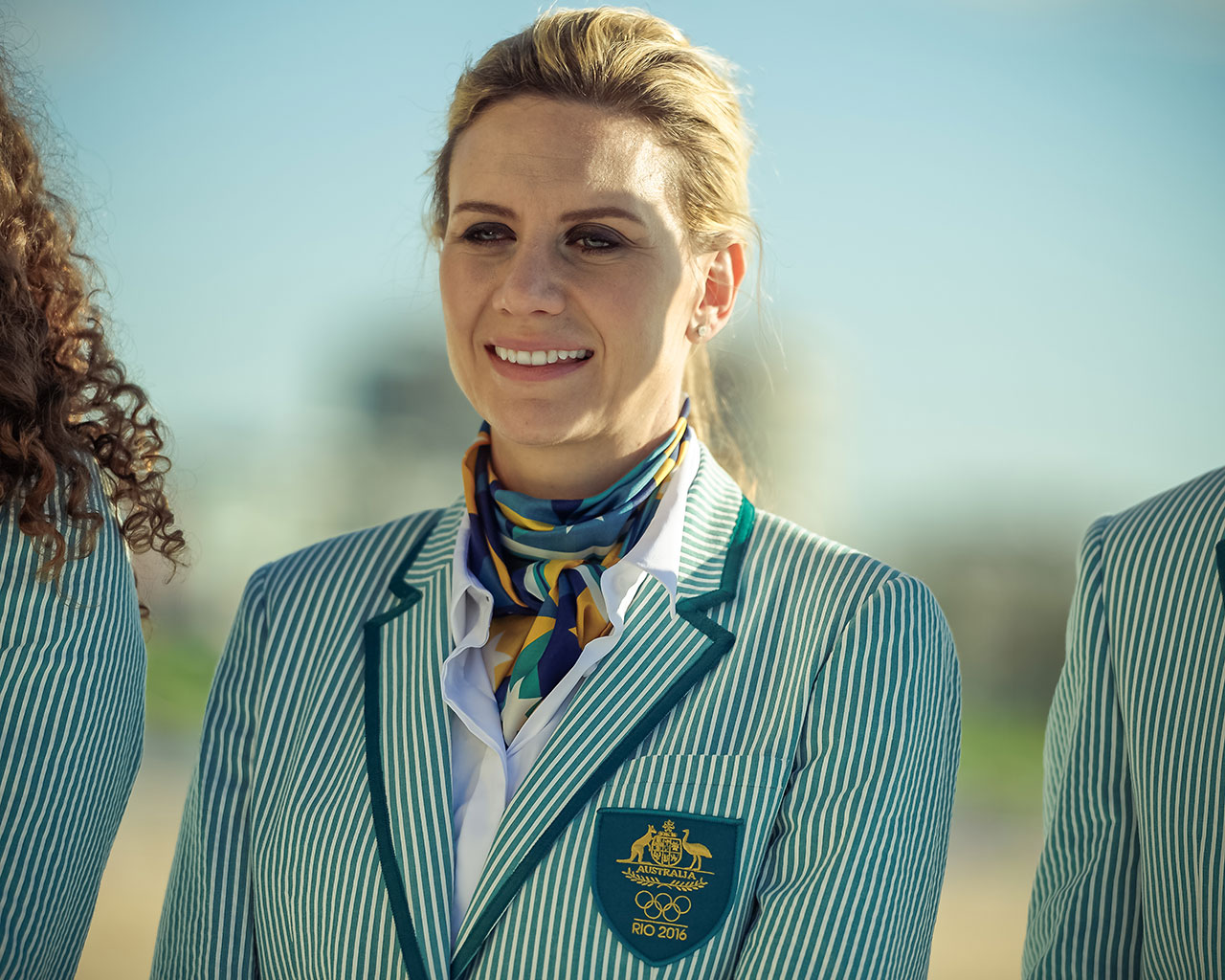News feed

Penny Taylor, Womens Basketball Olympic medalist, poses in her Sportscraft Australian opening ceremony uniform
Credit: Hugh Peterswald/Pacific Press/LightRocket via Getty Images
When she walks into Maracanã Stadium in 24 days time, dual Olympic silver medallist Penny Taylor will enjoy a unique vantage point – one that has nothing to do with her considerable height.
Rio 2016 will mark Taylor’s third appearance at the Summer Games, and having missed out on playing in London due to a serious injury, she returns not only with a wealth of experience playing for her country but a renewed enjoyment and love for her sport. Before an opening round face-off against the Brazilian home team and an almost inevitable face-off with their chief rivals from the United States, GRAZIA spoke with Taylor – who also plays alongside her biggest competitors in the WNBA – about the necessary sacrifices she has made to reach the top of her field and why she has learned more from her failures than from anything else.
“I was four years old when I started playing, so I don’t remember much of those early years but I do remember just loving it. I’ve always loved the game and always enjoyed learning all there is to know about the game. When I was 11, we went for a club championship and I just remember being so excited and so proud that we could win that. It’s really for me about knowing the sport inside out, more than the medals and the achievements. It’s making sure that I’m at the best possible level that I can be. I think that as you get older you generally enjoy the experience leading up to the Games a little bit more. You’re not as stressed and you’re less anxious, so I’m definitely in that mode of just really enjoying the ride, taking it all in and helping the younger ones do the same thing so they too can enjoy the experience.
“When I was 15 years old, I left my home in Melbourne to attend the Institute of Sport [in Canberra] and that was tough because I’m kind of introverted and for me to leave home and go live in a different state away from my family [was the biggest risk I’ve taken]. That’s when I decided that this would really be my career, and I never looked back from there on. It was hard at first, but that’s just one of the sacrifices you have to make as an athlete in order to go to the next level. I feel like it was the best thing for me and I knew that at the time, which made it a lot easier.
“The lifestyle has been hard. I haven’t seen my family much. I look back now that I’m older and I did miss out on a lot of time with my nieces and nephews, and my parents, who have now passed away. It’s a big sacrifice but at the same time they’ve had a lot of enjoyment from that successes that I’ve had. They’ve visited me all around the world, and been proud of me competing in Athens and Beijing. They knew it was my passion, and so they understood. But I think that you do make a lot of sacrifices, and you can’t get those years back.
“To me, success is just being the best you can be, and that’s different for everyone. It’s a little cliché, but I always want to know that I’m doing the best I possibly can. That I know the most. That I studied the most that I can. That I’ve taken care of my injuries and taken care of myself the best I can. At the end of the day, that’s all you can do, and I feel that across the board these athletes are here because they’ve done that too.
“My mum was a great support. She used to say, ‘Just get your shots in’. For me, that was the balance that I needed, to not take things too seriously. When everyone else was saying, ‘Lift your elbow, do this’, mum would say ‘Just get your shots in’. It was really refreshing. I would train myself really hard and she would just be like, ‘Take the day off.’ She was great for me in the sense that she gave me perspective, and was really helpful in balancing out my own personality.
“I’ve had a lot of failures in my career. I’ve had some times where I wasn’t sure I would ever get back to the top. Injuries, especially, have been a big one for me – I did my ACL [Anterior Cruciate Ligament] just before the London Olympics. That was pretty devastating for me because I had to miss those Games, but it taught me to work harder. It made me realise how much I loved the sport as well, because I could’ve just given up and let it go. After my fourth knee surgery, I was like, ‘Ugh, I’ve got to start all over again’, but it wasn’t really a choice and I just had to do it because, like I said, I love it.”
Tile and cover image: Burak Akbulut/Anadolu Agency/Getty Images










